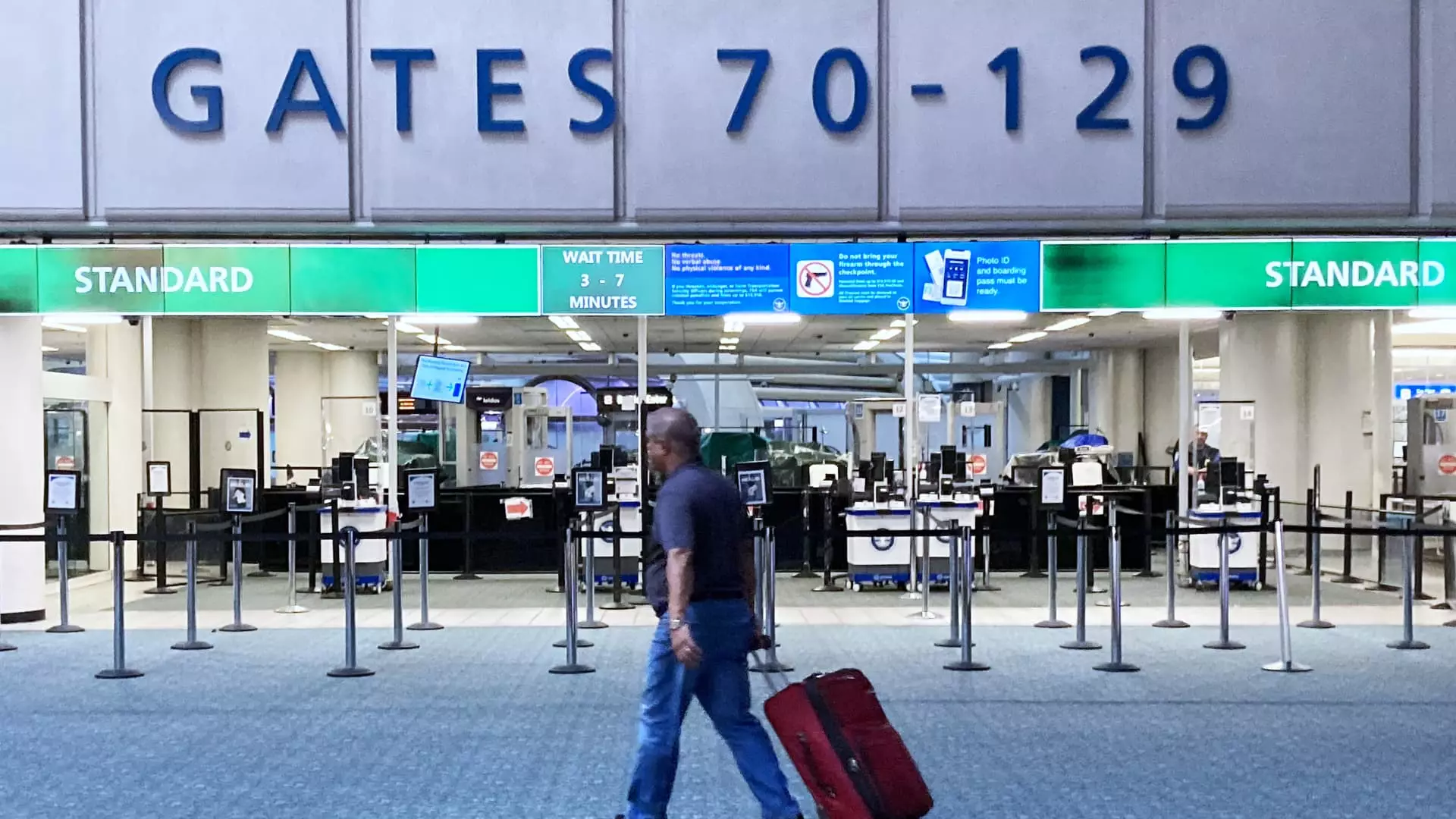The looming threat of a government shutdown threatens to disrupt the busiest travel season of the year, just as millions of Americans prepare to celebrate the holidays. With negotiations in Congress at a standstill, lawmakers recently voted against a short-term funding bill backed by President-elect Donald Trump. If an agreement isn’t reached, the shutdown could commence as early as 12:01 a.m. ET on Saturday. This scenario raises significant concerns regarding the immediate ramifications for government employees and the broader travel industry.
The Consequences for Government Employees
A government shutdown would lead to the furlough of hundreds of thousands of federal workers, leaving them without pay during one of the most active travel periods of the year. Essential services, particularly in transportation security, would still be operational, as more than 14,000 air traffic controllers and approximately 60,000 TSA agents are designated as essential personnel. However, these workers would be required to perform their duties without compensation, which raises ethical questions about the treatment of employees who are critical to national infrastructure.
The repercussions of such a scenario can affect morale and operational efficiency. Government agencies depend on their workforce’s stability to maintain security and service standards, and an extended shutdown could foster discontent among those who are forced to work without pay while seeing their contributions undervalued. Moreover, if the shutdown persists, it may lead to increased absenteeism and lower productivity levels as employees grow frustrated with their circumstances.
The economic consequences of a government shutdown are profound, especially for the travel and hospitality sectors. Estimates from the U.S. Travel Association suggest a financial hit of approximately $1 billion per week for the industry. Such losses would not only affect airlines and hotels but also various businesses that rely on travel-related spending, from restaurants to local attractions.
Geoff Freeman, the U.S. Travel Association’s president, articulates the absurdity of compelling essential workers, such as TSA personnel and air traffic controllers, to continue working without compensation during peak travel times. This environment of uncertainty can create anxiety among travelers, who may reconsider their plans due to a lack of confidence in service reliability.
Despite looming shutdown concerns, airlines are still anticipating a record year-end holiday season. Airlines like United Airlines project a substantial increase in passenger numbers, with their forecasts indicating nearly 10 million travelers between December 19 and January 6, marking a 12% rise from previous year figures. Such optimism underscores an inherent contradiction: the travel industry is poised for growth while simultaneously grappling with the specter of congressional gridlock that could disrupt its operations.
If a shutdown unfolds, TSA officers have acknowledged that while they will continue to process travelers, longer wait times at security checkpoints are inevitable. David Pekoske, the TSA administrator, expressed concerns regarding the potential for delays, especially given the historically high volumes of travelers expected through the holiday season.
The last major government shutdown from late 2018 through early 2019 serves as a cautionary tale. It lasted over a month, during which air traffic faced considerable congestion due to staffing shortages caused by callouts from air traffic controllers. Therefore, the logistics and planning in maintaining airport operations may require immediate attention to mitigate the impact on travelers.
As uncertainty pervades the current landscape, the nomination of a permanent administrator for the Federal Aviation Administration (FAA) becomes all the more crucial. With the impending departure of FAA chief Mike Whitaker, who is set to resign when Trump takes office, the next administrator must prioritize modernization efforts in air traffic control and recruitment of new personnel. Delta Air Lines CEO Ed Bastian has emphasized the need for these reforms to navigate the challenges that inevitably arise during high-volume travel seasons.
The potential for a government shutdown poses multiple layers of challenges not only for federal employees but also for the economy and the travel industry. As the clock counts down to potential disruption, the interplay between government decisions and their real-world effects on individuals and businesses is significantly highlighted—an important reminder of the interconnectedness of governance and everyday life.

